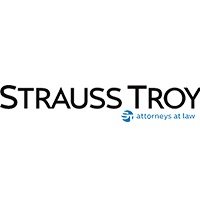Best Commercial Litigation Lawyers in Kentucky
Share your needs with us, get contacted by law firms.
Free. Takes 2 min.
Or refine your search by selecting a city:
List of the best lawyers in Kentucky, United States
About Commercial Litigation Law in Kentucky, United States
Commercial litigation refers to legal disputes related to business issues. In Kentucky, this area of law covers a wide range of conflicts involving companies, partnerships, corporations, or individual entrepreneurs. Commercial litigation can include breach of contract claims, partnership or shareholder disputes, business torts, fraud allegations, intellectual property matters, and issues between businesses and government entities. Kentucky courts handle these cases in both state and federal systems, and the process is governed by specific laws and procedures unique to the state.
Why You May Need a Lawyer
You may need legal assistance in commercial litigation for several common reasons. If your business is facing a breach of contract allegation, is involved in a conflict with a partner or shareholder, or is accused of fraudulent activity or misrepresentation, an attorney can help protect your interests. Other scenarios include disputes over non-compete agreements, trade secrets, construction contracts, real estate transactions, or payment collection issues. Engaging a lawyer early on can help you understand your rights, comply with procedural requirements, and negotiate favorable solutions or vigorously defend your position in court.
Local Laws Overview
Commercial litigation in Kentucky is governed by a combination of state statutes, Kentucky Rules of Civil Procedure, and specific business laws such as the Kentucky Business Corporation Act. The state court system includes both Circuit Courts, which handle most commercial disputes, and District Courts for limited types of cases. Cases involving federal questions or parties from different states may be handled by the United States District Court for the Eastern or Western District of Kentucky. Kentucky enforces the Uniform Commercial Code for transactions involving the sale of goods, and the state has its own laws for trade secrets, unfair business practices, and contract enforcement. Time limits for filing lawsuits, known as statutes of limitation, also apply and can affect your ability to bring or defend against claims.
Frequently Asked Questions
What is commercial litigation?
Commercial litigation is the process of resolving business disputes through legal action in the courts or through alternative dispute resolution methods such as mediation or arbitration.
What types of cases are considered commercial litigation in Kentucky?
Examples include breach of contract, partnership disputes, intellectual property infringement, employment matters, business fraud, unfair competition, debt collection, and real estate disputes.
How long do I have to file a business lawsuit in Kentucky?
The statute of limitations depends on the type of claim. Many contract disputes must be filed within five years, but some tort or fraud claims have shorter or longer limits. Consulting with a lawyer promptly is important to avoid missing deadlines.
Can a business owner represent themselves in commercial litigation?
Technically, an individual may represent themselves (pro se), but corporations and LLCs usually must be represented by a licensed attorney in Kentucky courts. Commercial litigation can be complex, so having a lawyer is highly advised.
What is the difference between mediation, arbitration, and court litigation?
Mediation is a voluntary process where a neutral third party helps the disputing parties reach a settlement. Arbitration is a more formal process where an arbitrator makes a binding decision. Court litigation is the process of resolving disputes in a state or federal court with a judge or jury.
How much does commercial litigation cost in Kentucky?
The cost depends on the complexity of the case, length of litigation, and attorney fees. Many lawyers charge hourly rates, but some offer alternative billing arrangements or flat fees for certain services. Costs can also include court filing fees, expert witnesses, and document discovery.
Are punitive damages allowed in Kentucky commercial litigation?
Punitive damages may be awarded in cases involving intentional wrongdoing or gross negligence, though these damages are only available in specific types of claims and must meet high legal standards in Kentucky.
What should I do if my business is sued?
Do not ignore the lawsuit. Contact a lawyer immediately, assess the claims, preserve all relevant documents, and avoid discussing the case with the opposing party until you have legal advice.
Can I resolve a business dispute without going to court?
Yes, many commercial disputes in Kentucky are resolved through negotiation, mediation, or arbitration. These methods can save time and expenses compared to court litigation.
What happens if I ignore a court summons or lawsuit?
Failing to respond can result in a default judgment against your business, meaning the court may automatically rule in favor of the other party. Always respond to legal notices promptly.
Additional Resources
- Kentucky Court of Justice: Provides information about local courts, rules, and forms relevant to commercial litigation
- Kentucky Secretary of State: Offers guidance on business entity laws, registration, filings, and compliance
- Kentucky Bar Association: Features legal resources, attorney directories, and public referral services
- US District Court for the Eastern and Western Districts of Kentucky: Handles federal cases involving commercial litigation
- Legal Aid Network of Kentucky: Provides resources and sometimes assistance for qualifying small business owners
Next Steps
If you are facing a commercial dispute in Kentucky, act quickly to protect your rights. Gather all related contracts and communications, document the facts, and avoid making further commitments before consulting a qualified attorney. Research and select a lawyer who has experience handling commercial lawsuits similar to yours. Schedule an initial consultation to discuss possible strategies, costs, and timelines. If needed, consider alternative dispute resolution methods such as mediation or arbitration to resolve your case efficiently. Remember, staying informed and seeking professional advice as early as possible can help you achieve the best outcome for your business interests.
Lawzana helps you find the best lawyers and law firms in Kentucky through a curated and pre-screened list of qualified legal professionals. Our platform offers rankings and detailed profiles of attorneys and law firms, allowing you to compare based on practice areas, including Commercial Litigation, experience, and client feedback.
Each profile includes a description of the firm's areas of practice, client reviews, team members and partners, year of establishment, spoken languages, office locations, contact information, social media presence, and any published articles or resources. Most firms on our platform speak English and are experienced in both local and international legal matters.
Get a quote from top-rated law firms in Kentucky, United States — quickly, securely, and without unnecessary hassle.
Disclaimer:
The information provided on this page is for general informational purposes only and does not constitute legal advice. While we strive to ensure the accuracy and relevance of the content, legal information may change over time, and interpretations of the law can vary. You should always consult with a qualified legal professional for advice specific to your situation.
We disclaim all liability for actions taken or not taken based on the content of this page. If you believe any information is incorrect or outdated, please contact us, and we will review and update it where appropriate.
Browse commercial litigation law firms by city in Kentucky
Refine your search by selecting a city.
















